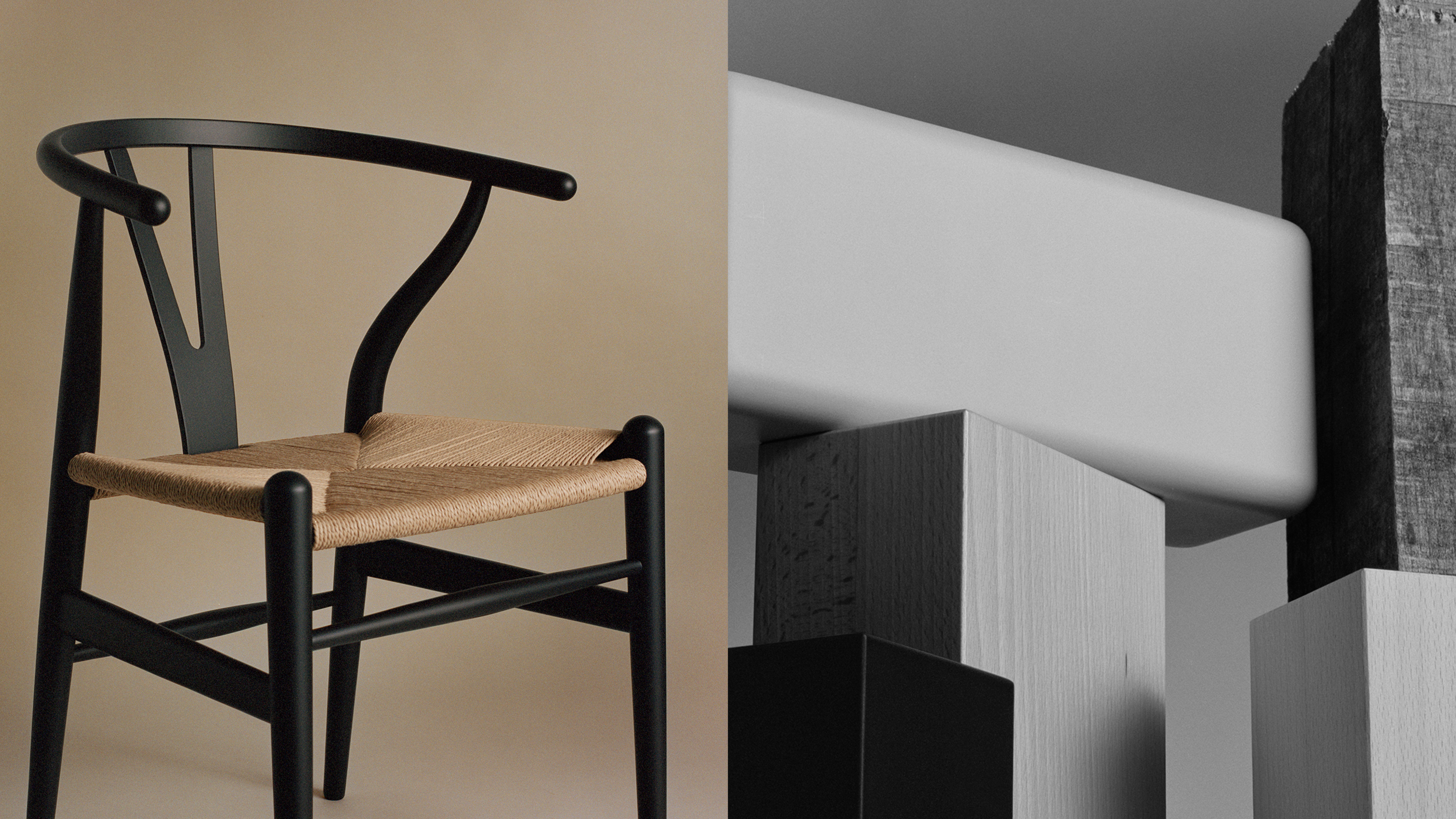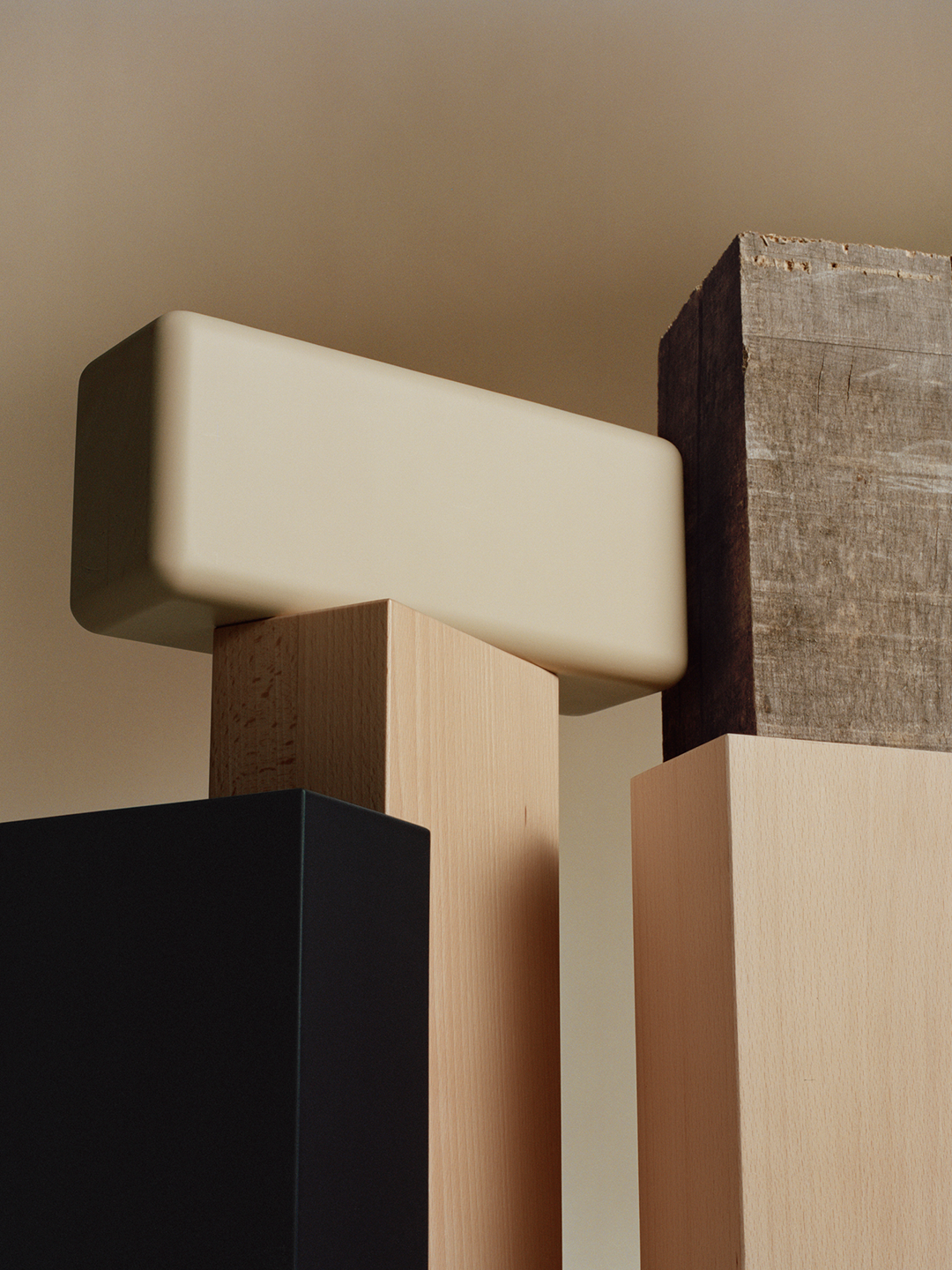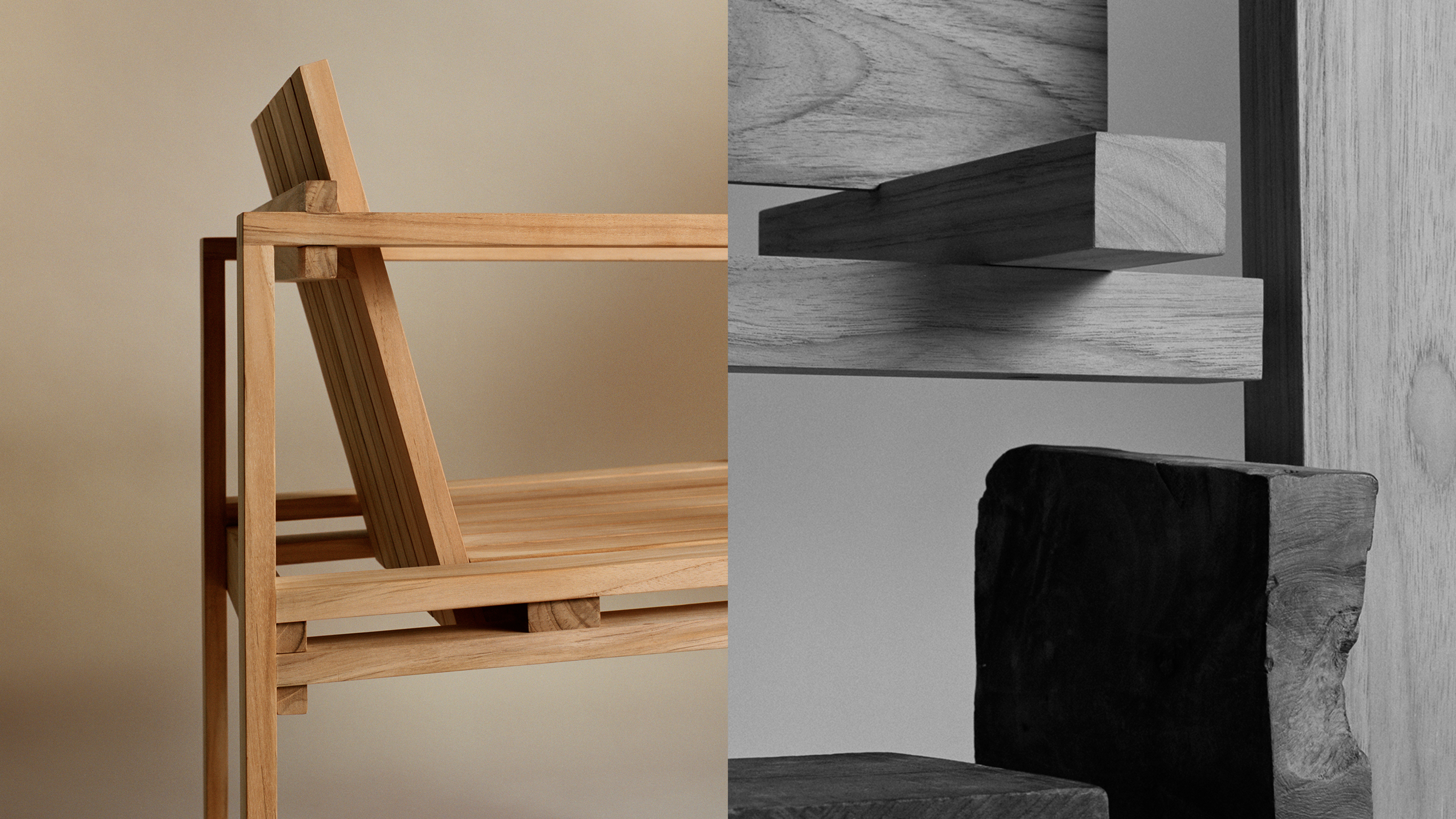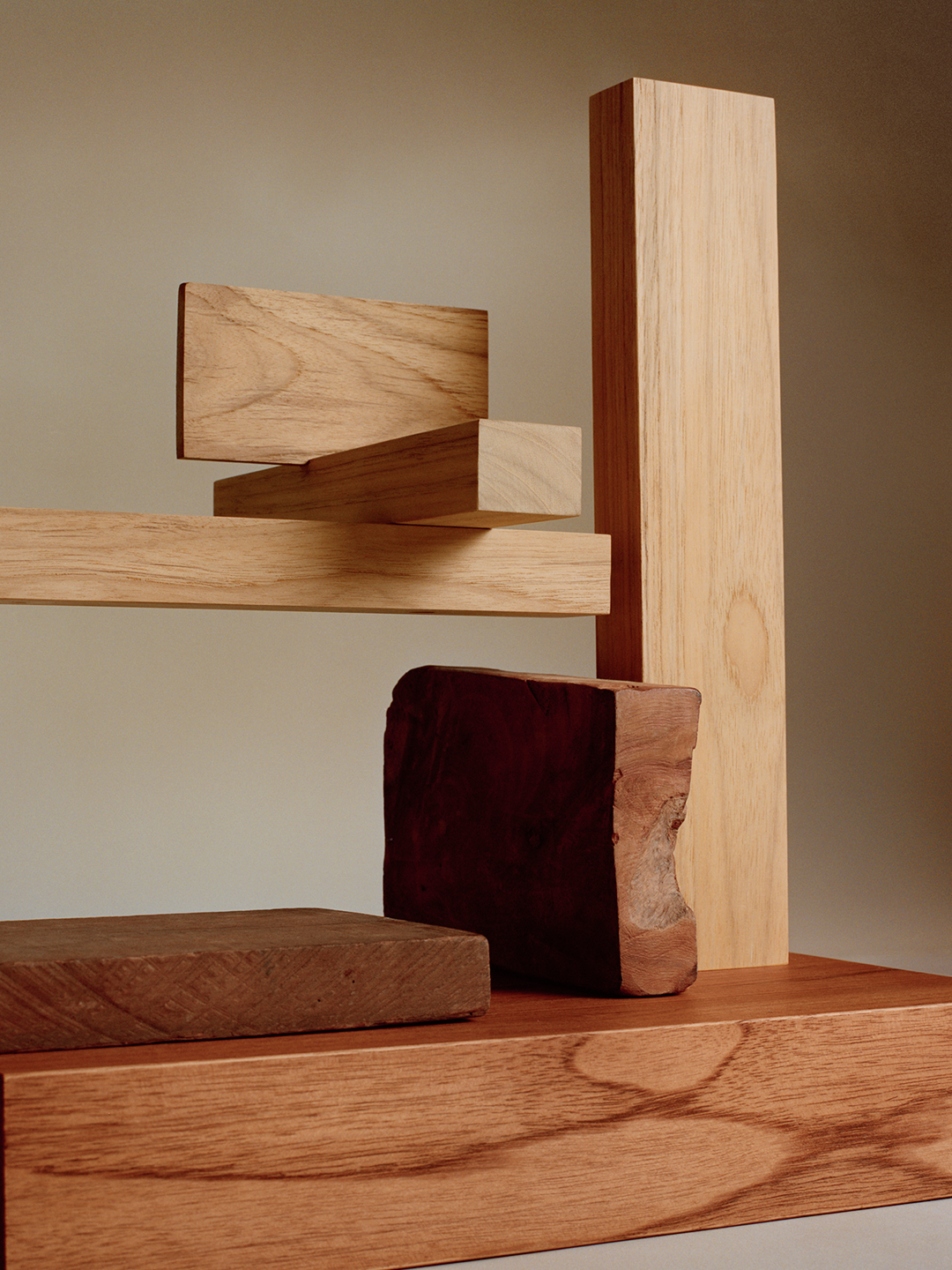Beech
Our hardest wood type, beech boasts impressive strength and a pleasingly uniform appearance.

Predominantly found across Central Europe, the deciduous beech tree is highly valued for its timber. In addition to its long history as a building material, the species has an intriguing connection with art: centuries ago, the Old Masters burned beechwood to produce brownish soot used as the ink for their works. Today, this sturdy and durable wood is used to craft a wide range of products, including the solid wood frames of our upholstered designs.
Beech’s popularity is due in large part to the hardness of its wood. At Carl Hansen & Søn, we only use the heartwood of the beech to ensure that our furniture possesses optimal strength and high abrasion resistance. In addition to its toughness, beech possesses a consistent structure due to its lack of visible growth rings and is recognizable by the dark brown, comma-shaped flecks on its light, pinkish-brown surface.

Beech lends itself well to treatments and finishes because its trademark hardness and smooth, homogenous surface allow for a neat and even distribution. As the preferred choice for paint, beech was selected for a special edition series, which saw the Wishbone Chair dressed in non-toxic, water-based paint in an earthy palette of colours selected by Ilse Crawford.
Because untreated beech is easy to maintain, it is the preferred wood for our children’s furniture. Once the piece has been assembled in its new home, it can be soaped and sanded down to enhance its beauty.
Qualities in furniture production
Beech is a very hard wood type and the hardest wood type in the Carl Hansen & Søn range.
Beechwood has a very homogeneous surface, structure and hardness, which means that the wood does not absorb the paint when surface-treated, but the paint is distributed neatly and evenly on the surface.
At Carl Hansen & Søn, beech is also used for wooden frames and upholstery frames due to its high strength characteristics.
Origin
Beech grows naturally throughout Europe and especially Central Europe.
Carl Hansen & Søn only uses FSC-certifiedÒ(FSC-C135991) beech from responsible partners.
Growth & size
The beech tree can grow up to 40 metres in height and 2 metres in diameter.
The wood species is relatively accessible due to the large trunk with good opportunities to utilise all the wood.
Hardness
Beech is a hardwood species.
The weight of the wood may vary, but the mean weight is approximately 680 kg/m³.
Appearance
At Carl Hansen & Søn, we only use the heartwood of beech.
Beechwood has a reddish-brown colour in an untreated, lightly evaporated state.
With beech, it is not easy to see growth rings and the structure of the wood is thus very uniform.
Beech can be recognised by the dark brown, comma-shaped flecks in the wood.
At Carl Hansen & Søn, we prioritise the careful sorting of all our wood – wood that is uneven or exhibits colour difference is surface-treated and the most solid-coloured wood is treated with oil or soap.
Surface treatment
At Carl Hansen & Søn, we surface treat beech with soap, lacquer, oil and water-based paints.
Surface-treating the wood ensures a beautiful surface, additional durability and easy cleaning.
Since the colour of the wood ages with exposure to light, its appearance changes over time. Beech will eventually acquire a darker tone.
At Carl Hansen & Søn, we lacquer beech in all our standard colours, and the surface is smooth with minimal structure due to the dense and fine-pored wood structure.


Highly resistant to weather and water damage, teak unites premium quality with a polished appearance.